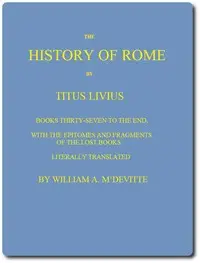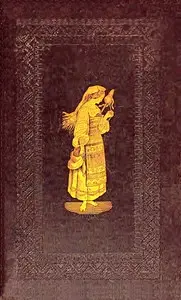"The History of Rome, Books 37 to the End" by Livy is a historical account written in the early 19th century. This work serves as a continuation of Livy's monumental examination of Rome's history, focusing on the events and conflicts that occurred during the later stages of the Roman Republic, particularly the wars against Antiochus and the political dynamics at play during this era. The text provides insights into important figures like Lucius Cornelius Scipio and explores themes of military strategy, diplomacy, and the complexities of Roman alliances. The opening of this historical narrative sets the stage for a detailed discussion of military campaigns and political maneuvering in the Roman Senate. It describes the preparations for war against Antiochus, highlighting significant military leaders and their strategies, such as Lucius Cornelius Scipio’s first foray into Asia and the naval confrontations with Antiochus's fleet. Livy details the negotiations with various states, the failures of diplomacy with the Ætolians, and the ensuing actions taken by the Roman commanders to secure victory and expand the Republic's influence. The drama of military engagements, coupled with the interaction of political factions, vividly illustrates a pivotal moment in Roman history, effectively drawing readers into this complex and combative period. (This is an automatically generated summary.)

The History of Rome, Books 37 to the End with the Epitomes and Fragments of the Lost Books
By Livy
"The History of Rome, Books 37 to the End" by Livy is a historical account written in the early 19th century. This work serves as a continuation of Li...
Genres
Released
2013-11-30
Formats
epub
epub3 (images)
mobi (images)
epub (images)
mobi
Free Download
Overview
About the Author
Titus Livius, known in English as Livy, was a Roman historian. He wrote a monumental history of Rome and the Roman people, titled Ab Urbe Condita, ''From the Founding of the City'', covering the period from the earliest legends of Rome before the traditional founding in 753 BC through the reign of Augustus in Livy's own lifetime. He was on good terms with members of the Julio-Claudian dynasty and was a friend of Augustus, whose young grandnephew, the future emperor Claudius, he encouraged to take up the writing of history.
Total Reviews
10.0k
Total reviews from Goodreads may change

















